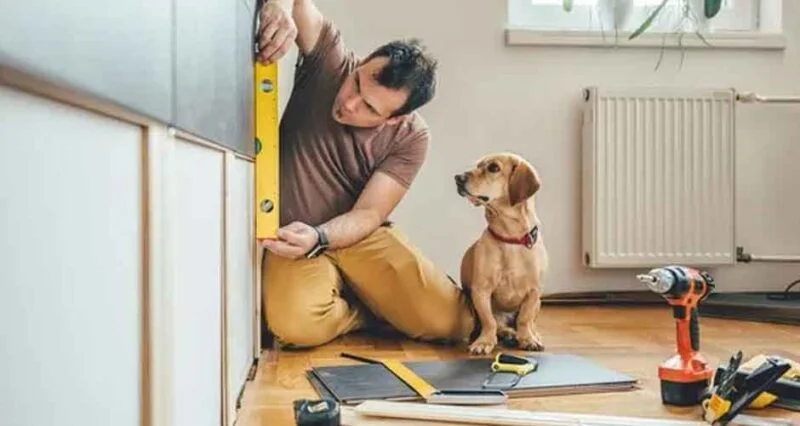
Our homes are a big part of our lives and hold memories of significant life events. From celebrating milestones to forming new relationships, they reflect who we are and allow us to express ourselves freely.
As we grow and change, sometimes a renovation or upgrade is needed to enhance the space. However, it’s not something that you should do on a whim. Whether you’re planning a small DIY project or a complete remodel – preparation is needed to ensure success.
Interested in learning more? Below we are going to discuss eight questions that you should ask yourself before starting a home improvement project.
What is the purpose of the project?
Knowing why you want to improve your home is the first step to any successful renovation. Are you looking to enhance the functionality of a space? Perhaps you simply want to refresh the aesthetics?
Whatever the purpose, each will lead to different decisions regarding design and materials. In most cases, you are better off choosing options that will have the highest return on investment (ROI) and will increase property value.
What is your budget?
Once you’ve determined the purpose of your project, you need to run through the financial implications. Begin by setting a budget that you’re comfortable with and do your research to see if your expectations align with reality.
Alongside labor and unforeseen expenses, don’t forget to factor in material costs. From custom plexiglass to timber, paint, and even small tools – there is a lot to take into consideration!
What are your long-term goals?
Another critical thing to assess before starting your project is your long-term goals. The changes you make now could affect future renovations, so be cautious.
For instance, if you want to add an extension in the future, you must double-check that this project will allow for that. Each space must be cohesive if you wish to create a home that feels harmonious in the long run.
Do you have the necessary skills and experience?
DIY projects can be a great way to save money, but sometimes it’s best to leave things up to the professionals. There’s a significant difference between painting a few walls and installing a new electrical circuit!
If you don’t have the skills or knowledge, consult with the right experts and obtain a few separate quotes. Yes, it will cost you more, but it will ensure that the job is done correctly and reduces the risk of dangerous accidents.
Will this project require permits?
Some home renovations require permits from the local government. This may include major additions as well as seemingly simple adjustments like changing your layout.
Permits are necessary to ensure that the changes meet building codes and safety standards. Skipping this step can result in fines or even having to undo your work, so always take the time to factor them into your plan.
How will this improvement impact daily living?
Home improvement projects can disrupt your daily routine, especially when they’re being carried out in essential areas of your home. Think about how you’ll manage with limited or no access to spaces such as your kitchen or bathroom.
For larger projects, you may need to consider temporary living arrangements in order to maintain a functional household. This will require additional funds and can potentially change your budget.
What is your timeline for completion?
Setting a realistic timeline for your home improvement project is important, but it’s also vital that you are flexible. Unexpected delays can occur due to changes in design, weather forecasts, and back-ordered materials.
Work with your contractor to establish a timeline that factors in potential obstacles, to prevent unnecessary stress. Trust us when we say, you’ll be grateful for being prepared.
How will you maintain the space in the future?
The work doesn’t end when the job is completed. Maintaining your newly improved home is just as important as the building stage – no matter how small the project is. This includes regular cleaning, fixing small issues, and understanding how specialized features/equipment work.
Consider creating a maintenance plan that outlines tasks and their frequency to keep your home in top condition. Without doing this, all of your hard work will go to waste.
Final Words
By taking the time to answer these questions before starting your home improvement project, you’re equipping yourself with the knowledge to tackle it successfully. Remember, you never want to rush the process. The more careful you are, the smoother it will be. Good luck!
